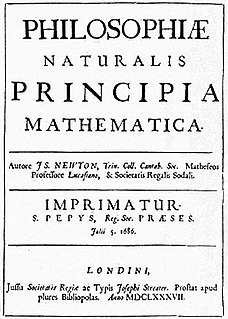 W
WThe literature of England is literature written in what is now England, or by English writers. It consists mainly of English literature - i.e. literature written in the English language - but there are important examples of literature from England written in other languages.
 W
WAn Apology for Poetry is a work of literary criticism by Elizabethan poet Philip Sidney. It was written in approximately 1580 and first published in 1595, after his death.
 W
WThe literary tradition of Birmingham originally grew out of the culture of religious puritanism that developed in the town in the 16th and 17th centuries. Birmingham's location away from established centres of power, its dynamic merchant-based economy and its weak aristocracy gave it a reputation as a place where loyalty to the established power structures of church and feudal state were weak, and saw it emerge as a haven for free-thinkers and radicals, encouraging the birth of a vibrant culture of writing, printing and publishing.
 W
WRaymond Wilson Chambers was a British literary scholar, author, and academic; throughout his career he was associated with University College London (UCL).
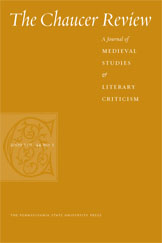 W
WThe Chaucer Review: A Journal of Medieval Studies and Literary Criticism is an academic journal published by the Penn State University Press. Founded in 1966 by Robert W. Frank, Jr. and Edmund Reiss, The Chaucer Review acts as a forum for the presentation and discussion of research and concepts about Chaucer and the literature of the Middle Ages. The journal publishes studies of language, social and political contexts, aesthetics, and associated meanings of Chaucer's poetry, as well as articles on medieval literature, philosophy, theology, and mythography relevant to study of the poet and his contemporaries, predecessors, and audiences.
 W
WThe Countess of Pembroke's Arcadia, also known simply as the Arcadia, is a long prose pastoral romance by Sir Philip Sidney written towards the end of the 16th century. Having finished one version of his text, Sidney later significantly expanded and revised his work. Scholars today often refer to these two major versions as the Old Arcadia and the New Arcadia. The Arcadia is Sidney's most ambitious literary work by far, and as significant in its own way as his sonnets.
 W
W(This page is part of the History of the Jews in England)
 W
W"Friends, Romans, countrymen, lend me your ears" is the first line of a speech by Mark Antony in the play Julius Caesar, by William Shakespeare. Occurring in Act III, scene II, it is one of the most famous lines in all of Shakespeare's works.
 W
WRitchie Girvan was a Scottish literary scholar, author, and academic; throughout his career he was associated with the University of Glasgow, where he made his name studying the Old English poem Beowulf. He is best known for his 1935 book Beowulf and the Seventh Century: Language and Content.
 W
WHighfield was a large house situated at 128 Selly Park Road in the Selly Park area of Birmingham, England. Built in the 1860s, it was bought in 1929 by Philip Sargant Florence and his wife Lella Secor Florence after Sargant Florence was appointed as a Professor at the nearby University of Birmingham.
 W
WThis is a list of writers in English and Cornish, who are associated with Cornwall and Cornish linguists. Not all of them are native Cornish people.
 W
WMal du siècle is a term used to refer to the ennui, disillusionment, and melancholy experienced by primarily young adults of Europe's early 19th century, when speaking in terms of the rising Romantic movement. François-René de Chateaubriand's protagonist René characterizes the Romantic ennui that would become a benchmark of the Romantic esthetic in the first half of the century: René is a young man who was suffering from the moral malady known as "le mal du siècle". This was an "état d'âme" that was not uncommon during the first half of the nineteenth century, and that was often copied and idealized in literature. It was largely boredom. Other manifestations were: melancholy of an aristocratic type, precocious apathy, discouragement without cause, distaste for living. The will seemed paralyzed by the contemplation of life's struggle. Faith and a sense of duty were alike absent. Man was "possédé, tourmenté par le démon de son cœur." Morbid sadness was mistaken for the suffering of a proud and superior mind. There was in it all a certain "bonheur d'être triste" which attracted. This pessimistic state was analyzed in René with great subtlety and penetration. The hero was made a most original and living type, a type that was repeated in the Childe Harold and Manfred of Byron, and even, in some of its manifestations, in the Hernani of Victor Hugo. In the opinion of Chateaubriand, René was his masterpiece. Later judgments regarding it are not unanimous, but many authoritative French critics see in it one of the masterpieces of their literature.
 W
WMerrie England is an influential collection of essays on socialism by Robert Blatchford under the pseudonym "Nunquam", published in 1893. The first issue by Nunquam was priced at one shilling. It sold over two million copies worldwide. It was said that for every one convert to socialism made by Karl Marx's Das Kapital there were a hundred converts made by “Merrie England” – though even this may be an underestimate.
 W
WBelow is a list of books about Oxford or written in Oxford, Oxfordshire, England. The city of Oxford has generated and inspired much literature. Many authors have lived in Oxford, especially associated with the University. It has also been a setting used in many books.
 W
WIn 1752, Henry Fielding started a "paper war", a long term dispute with constant publication of pamphlets attacking other writers, between the various authors on London's Grub Street. Although it began as a dispute between Fielding and John Hill, other authors, such as Christopher Smart, Bonnell Thornton, William Kenrick, Arthur Murphy, and Tobias Smollett were soon dedicating their works to aid various sides of the conflict.
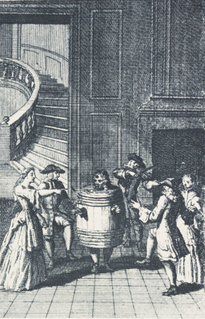 W
W"Restoration comedy" is English comedy written and performed in the Restoration period from 1660 to 1710. Comedy of manners is used as a synonym of Restoration comedy. After public stage performances had been banned for 18 years by the Puritan regime, the re-opening of the theatres in 1660 signalled a renaissance of English drama. Sexually explicit language was encouraged by King Charles II (1660–1685) personally and by the rakish style of his court. Historian George Norman Clark argues:The best-known fact about the Restoration drama is that it is immoral. The dramatists did not criticize the accepted morality about gambling, drink, love, and pleasure generally, or try, like the dramatists of our own time, to work out their own view of character and conduct. What they did was, according to their respective inclinations, to mock at all restraints. Some were gross, others delicately improper....The dramatists did not merely say anything they liked: they also intended to glory in it and to shock those who did not like it.
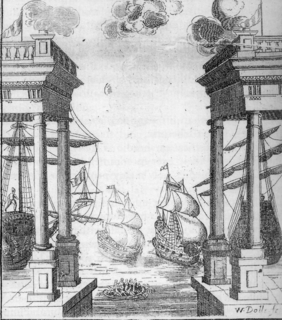 W
WThe Restoration spectacular, also known as a machine play, was a type of theatre prevalent in the late 17th-century Restoration period. Spectaculars were elaborately staged, comprising such setups as action, music, dance, moveable scenery, baroque illusionistic painting, costumes, trapdoor tricks, "flying" actors, and fireworks. Although they were popular with contemporary audiences, spectaculars have endured a bad reputation as a vulgar contrast to the witty Restoration drama.
 W
WThe revenge tragedy, or revenge play, is a dramatic genre in which the protagonist seeks revenge for an imagined or actual injury. The term, revenge tragedy, was first introduced in 1900 by A. H. Thorndike to label a class of plays written in the late Elizabethan and early Jacobean eras.
 W
WRogue literature is a literary genre that tells stories from the world of thieves and other criminals that was popular in England in the 16th and 17th centuries. The stories were mostly in a confessional form and full of vivid descriptions. Rogue literature is an important source in understanding the everyday life of the ordinary people and their language, and the language of thieves and beggars. This genre can be related to the stories of Robin Hood and jest book literature, as well as early examples of the first voice in fiction and autobiography.
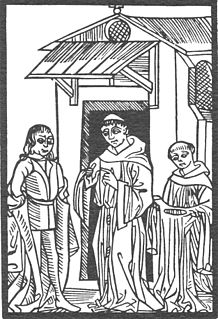 W
WTractatus de Purgatorio Sancti Patricii is a Latin text written about 1180–1184 by a monk who identified himself as H. of Saltrey. The author is traditionally known as Henry, and was a Cistercian in Huntingdonshire.
 W
WThe University Wits is a phrase used to name a group of late 16th-century English playwrights and pamphleteers who were educated at the universities and who became popular secular writers. Prominent members of this group were Christopher Marlowe, Robert Greene, and Thomas Nashe from Cambridge, and John Lyly, Thomas Lodge, and George Peele from Oxford. Thomas Kyd is also sometimes included in the group, though he was not from any of the above mentioned universities.